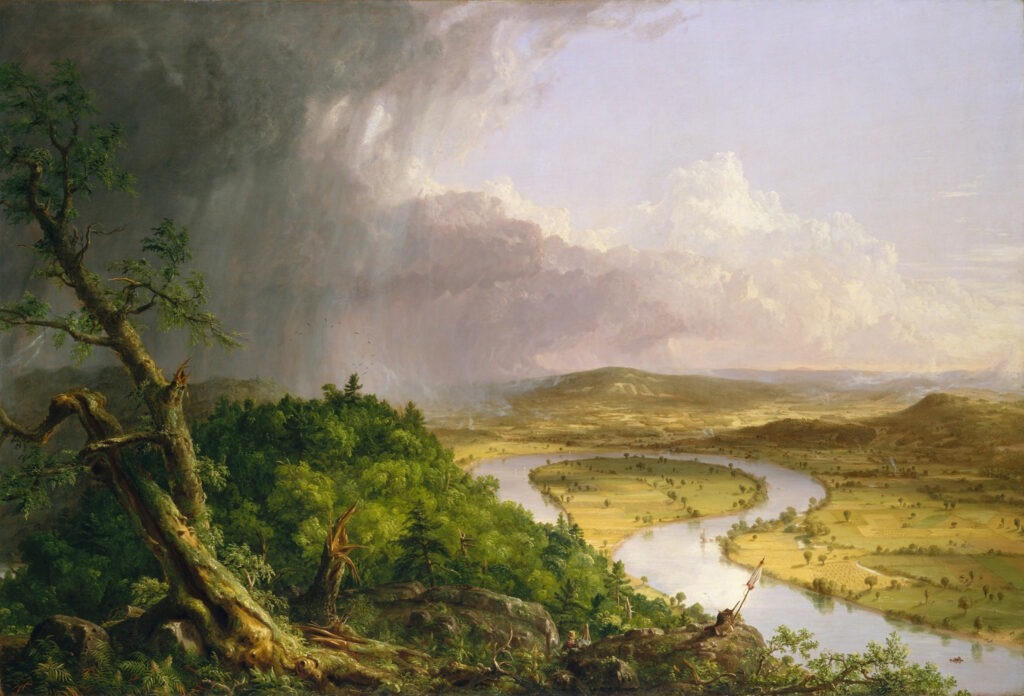Podcast: Download (Duration: 41:01 — 37.6MB)
Subscribe: Apple Podcasts | Spotify | Amazon Music | Android | Pandora | iHeartRadio | Blubrry | JioSaavn | Podchaser | Podcast Index | Email | TuneIn | Deezer | RSS
In her palace, Clio the patron Goddess of History has many rooms. This is the first of a recurring series of conversations in which we investigate one of the sub-disciplines of historical study. For those with a casual interest in history, it will be a way of learning something new. For graduate students, it should be a great introduction to studying for comprehensive exams.
As a way of beginning the series, and simultaneously celebrate Earth Day, Al Zambone has a conversation with his colleague Brian Leech on the discipline of environmental history. Ironically enough, while this is the first of the series, environmental history is one of the newest of historical disciplines.
And below you’ll find the Biggest List of Books ever on this podcast. At least until the next one. Happy listening.
Three Areas of Original Environmental History
Material History: Donald Worster, Dust Bowl, (1979); Rivers of Empire (1986). Capitalism transforms nature.
Political History & the History of Environmental Politics: Samuel P. Hays, Conservation and the Gospel of Efficiency: The Progressive Conservation Movement, 1890–1920 (1959)
Cultural History: Leo Marx, The Machine in the Garden (1964); Jennifer Price, Flight Maps (1999)
Then Everything Became Interconnected and Complicated
Hybrid Landscapes
Mark Fiege, Irrigated Eden (1999)
The Environmental Management State
Louis S. Warren, The Hunter’s Game: Poachers and Conservationists in Twentieth-Century America (1997)
Karl Jacoby, Crimes against Nature: Squatters, Poachers, Thieves, and the Hidden History of American Conservation (2001)
Mark David Spence, Dispossessing the Wilderness: Indian Removal and the Making of the National Parks (1999)
Agroenvironmental History
Judith A. Carney, Black Rice: The African Origins of Rice Cultivation in the Americas (2001)
John Soluri, Banana Cultures: Agriculture, Consumption, and Environmental Change in Honduras and the United States (2005)
Environmental Histories of Disease and Health
Linda Nash, Inescapable Ecologies: A History of Environment, Disease, and Knowledge (2006).
Gregg Mitman, Breathing Space: How Allergies Shape Our Lives and Landscapes (2007)
Nancy Langston, Toxic Bodies: Endochrine Disrupters and the Legacy of DES, 2010
The Human-Built World (Urban, Industrial, Mining)
Andrew Hurley, Environmental Inequalities (1995)
Tim LeCain, Mass Destruction: The Men and Giant Mines that Wired America and Scarred the Planet (2009)
Thomas G. Andrews, Killing for Coal (2008)
Gunther Peck, “The Nature of Labor: Fault Lines and Common Ground in Environmental and Labor History,” Environmental History 11 (April 2006), 212-38.
Water/Ocean History
Marc Reisner, Cadillac Desert (1993)
Craig Colten, Perilous Place, Powerful Storms
W. Jeffrey Bolster, The Mortal Sea: Fishing the Atlantic in the Age of Sail
Native American/Deep History
Andrew C. Isenberg, The Destruction of the Bison: An Environmental History, 1750–1920 (2000)
Shepard Krech III, The Ecological Indian: Myth and History (1999)
Elliott West, The Contested Plains: Indians, Goldseekers, and the Rush to Colorado (1998)
Studying Politics in Relation to Nature from All Sides
Karl Jacoby, Crimes against Nature: Squatters, Poachers, Thieves, and the Hidden History of American Conservation (2001)
Jay Turner, The Promise of Wilderness (2013)
Brian Drake, Loving Nature, Fearing the State: Environmentalism and Antigovernment Politics Before Reagan (2013)
Global/Transnational/Comparative
Kate Brown, Plutopia: Nuclear Families, Atomic Cities, and the Great Soviet and American Plutonium Disasters (2013)
Natural Disaster
Ted Steinberg, Acts of God: The Unnatural Disaster of Natural Disaster (2006)
Conevery Bolton Valencius, The Lost History of the New Madrid Earthquakes (2014)
Climate History
Alan Mikhail on the effects of an Icelandic Volcano on Ottoman Empire.

